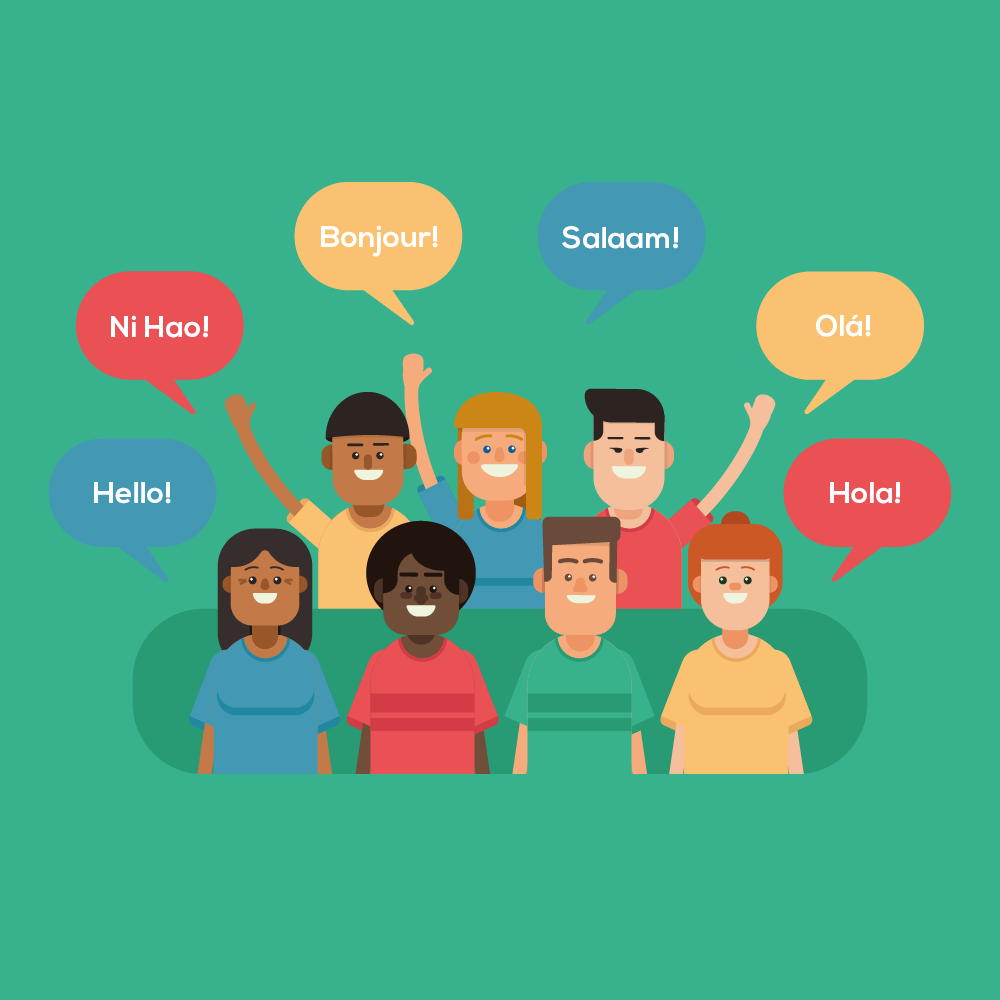10 EASY Ways to Speak ANY Language Fluently
Improve your fluency today
Build your speaking confidence with some easy activities you can practice at home!
August 2022
Learning a new language can be challenging, frustrating, and even difficult at times. For most learners, improving your spoken fluency is often considered the toughest to improve, but also the most desired. Why? Well, there are a few reasons!
Firstly, many people think that it’s impossible to practice their speaking skills on their own, but that’s not the case. There are many tips and tricks you can apply to improve your speaking on your own.
Secondly, you don’t have as much time to think about what you want to say and how you want to say it, especially when compared to writing. But once more, we have you covered!
So, without further ado, let’s jump into the 10 best ways you can speak more fluently.

1. Read aloud
Let’s turn reading and writing into a speaking activity. Rather than simply writing an email or message and clicking send, instead try reading things out loud. Don’t be afraid to get silly and try to mimic the accent of a true native while doing this. So much of talking is memorization, rather than thinking through word-by-word. The only way to build this memory is to practice, practice, practice. Once you get in an actual conversation, your knowledge of grammar and vocabulary will shine through proper speech. You’ll also get a confidence boost, which is extremely valuable for progress.
2. Think in the target language
Everyone knows that thinking in the target language is the best thing to do, but it’s easier said than done. To improve this skills, start simple; next time you’re on the BTS or stuck in traffic, create some stories in your head using the language you’re trying to learn. Make up stories about what the people around you are doing: Where are they going? What kind of work do they do? What’s their personality like? You can’t achieve high levels of fluency if you’re constantly thinking in your native language and doing mental translations!
3. Watch movies with subtitles, not dubbing
Subtitles may seem boring and distracting on the surface level, but there’s a lot of natural language and pronunciation you want to hear, learn from and eventually use yourself.
Here’s an easy 3-step process to improve your skills while watching series or movies:
- Watch it once, while reading the subtitles in your native language. If you hear words or sentences that you don’t understand, make a note for the next viewing.
- Watch it again, but this time while reading the subtitles in your target language. When you hear something interesting that you would like to use, pause the video and practice saying those words with the right accent.
- Watch the movie one final time, but now without subtitles! You may not understand it all, but this will take you to the next level.

4. Imitate and role play
Listen to the way the characters in the movie pronounce the words and try to do the same, just try to parrot back what you’ve heard at the same time by focusing on the accent, feeling and emotion. Your accent will start to get stronger, and closer to the native speaker you’re imitating.
5. Listen to music and learn the lyrics
Music is also fun because it connects you to the culture of the language you’re learning. It doesn’t matter whether you have a talent for music or not. The only important thing is to follow the flow of the words. Find the lyrics of your favorite music and try to sing along. The words flow naturally, and you can usually get the pronunciation right when you sing.
6. Listen to the radio or a podcast
Similar to watching a foreign movie and listening to the music, try listening to a radio station or a podcast in your target language. News shows are especially are an incredible resource for learning vocab and conversational structures fast. Pretending to be a show host or an announcer by imitating what they say is a plus!
7. Talk to yourself
Talking to yourself in your target language in front of the mirror or recording into your phone is an excellent way to learn where you make most mistakes. Language learners are often better at recognizing mistakes than knowing the correct form. If you can find where you make the most the mistakes and practice, you will be on the fast track to great development. Tongue twisters are a useful trick to help improve your rate of speech and enunciation. Let’s start practicing by try to say this:
“How much wood would a woodchuck chuck if a woodchuck could chuck wood? He would chuck, he would, as much as he could, and chuck as much wood as a woodchuck would if a woodchuck could chuck wood”

8. Practice with your friends or family
Friendship is one of the best ways to learn a foreign language, and the easiest way to get comfortable with the slang, intonation, and mannerisms. Find a language learning buddy! You can also make plans and set goals together, increasing your level of accountability and keeping you on track to fluency. Here’s a good idea: set aside just 30 minutes of each day where you and your friends or family an ONLY use the language you’re trying to learn; not native tongue allowed!
9. Talk to a native speaker
Your friends are great support when learning a foreign language together, but they cannot replace trained native speakers. At Modulo, Our teachers are all qualified, experienced native speakers from all over the world. They are experts at teaching beginners and advanced students, while keeping the class fun and engaging.
10. Travel abroad, and put your skills to the test
The best way to learn a foreign language is to spend time in a country that speaks your target language. Of course, moving to another country isn’t an easy or realistic option for many people… but that’s what holidays are for! You’ll meet many native speakers who will be happy to help you learn the language better in a real situation. If you’re feeling extra adventurous, hostels tend to be an excellent place to meet new people, and spend the evening chatting and learning about each other’s lives!
You don’t need to be a genius to become fluent at speaking a foreign language, you just need to have dedication and consistent practice. If you follow the 10 tips to better fluency listed above, you will reach your goal in no time. Don’t give up, and never stop learning!
